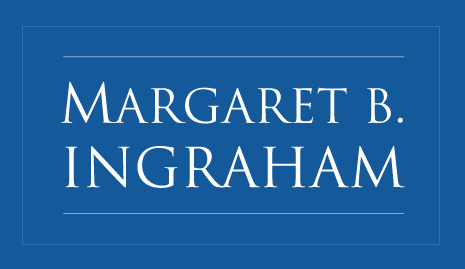Although it was centuries after King David’s death that Habakkuk wrote “But the Lord is in His holy temple; let all the earth keep silence before Him,”(Hab 2:20), it is certainly reasonable to expect the great psalmist might have uttered Habakkuk’s words on more than one occasion. We do not have any Biblical record of his doing so exactly, but he does begin Psalm 62 with the straightforward declaration, “For God alone my soul waits in silence” (Ps 62:1). So the central position that silence holds in David’s spiritual sojourns is clear. For him, it seems, such silent waiting was essential to opening the way to hear clearly from his Lord.
What David characterizes as silence of the waiting soul, we might also refer to as silence of the heart. In my experience, this silence can seem to be a remote spot in a desolate spiritual landscape where I am inclined to believe I am alone with virtually no sense or hope of connection. Silence was traditionally viewed in a similar manner by many of David’s kinsmen, according to renowned contemporary scholar and translator Robert Alter. In his footnotes to Psalm 94, he explains that the Hebrew word silence (dumah), which appears only 28 times in all of the Hebrew Bible, was understood to imply death. Additionally, beyond defining a state of being (or non-being), dumah also connoted a place, “the silent realm,” as Alter translates it. And that realm was Sheol, the place of the dead.
In the considerable period of time during which I have been away from this blog, because I could coax no words from a tired spirit and confused and vaguely disconsolate heart, I believe I entered that realm. My journey through a long winter of silence has revealed to me a truth that my own description here belies.
 Such silences of the heart are not seasons at all, not periods of time that we move with and within and through. They are more wholly encompassing than that. They are, as the Hebrew conveys and David understood, places– sanctuary places, necessary spaces – where our souls can meet our God when we most need Him. They are realms from which we will emerge changed if we have been attentive… and if we have waited; if we have listened; if we have been willing to let ourselves be “poured out like water” as David describes himself in Psalm 22:14.
Such silences of the heart are not seasons at all, not periods of time that we move with and within and through. They are more wholly encompassing than that. They are, as the Hebrew conveys and David understood, places– sanctuary places, necessary spaces – where our souls can meet our God when we most need Him. They are realms from which we will emerge changed if we have been attentive… and if we have waited; if we have listened; if we have been willing to let ourselves be “poured out like water” as David describes himself in Psalm 22:14.
From what we are told in scripture of David’s early life as the solitary shepherd dwelling in the wilderness alongside his sheep and away from his brothers, other family and kinsmen, we understand him to be a man who was both familiar and comfortable with the silence of the physical realm. The wilderness and dense quiet of desert nights nurtured and spoke to the contemplative silence of his longing heart. At times it brought peace and joy and praise, as when he surveys the skies and declares “The heavens are telling the glory of God and the sky above proclaims His handiwork” (Ps 19:1).
 At other moments, David’s wilderness dwelling — whether it was literal or figurative — was the seat of deep abandonment, a domain characterized by the sense of rejection and abjection so intense that he dared accuse God of forsaking him. Ponder that, and the significance of it, for a moment. The man after God’s own heart, who repeatedly in psalm after psalm brings himself with contrition before his Lord, in this brash instance indicts Him, citing Him for the breach of faith and communion.
At other moments, David’s wilderness dwelling — whether it was literal or figurative — was the seat of deep abandonment, a domain characterized by the sense of rejection and abjection so intense that he dared accuse God of forsaking him. Ponder that, and the significance of it, for a moment. The man after God’s own heart, who repeatedly in psalm after psalm brings himself with contrition before his Lord, in this brash instance indicts Him, citing Him for the breach of faith and communion.
“My God, my God, why have you forsaken me?” he bellows in the gripping opening address of Psalm 22. By the third verse, however, he has turned to acknowledge God’s faithfulness to him personally as well as throughout Israel’s history and to recognize his own failures and shortcomings. How he makes the shift so rapidly and seamlessly is not explained (although such turns are characteristic of Hebrew poetry) and probably of little consequence. But I am inclined to imagine — and to take instruction and consolation from that surmise –that David’s words reflect a deliberate decision to move willingly into the sense of emptiness and then to find the turn of heart, the sonnet-like volta, if you will, in his own act of confession.
That is all speculation, of course. What is not is that Psalm 22 is widely understood to be prophetic. It stands as the principal example of a messianic psalm and its first verse is quoted directly by Jesus, in Aramaic, from the cross — his first statement after several longs hours of mysterious mid-day darkness and silence when the curtain in the temple has been rent in twain.
Unlike David, Jesus solely cries out in desperation (quoting only the first line of the psalm); that is, he leaves his declaration and accusation to stand. He does not disavow or soft pedal his sense of forsakenness. To the contrary, he possesses it. He can do nothing else, for the ultimate abandonment has yet to be visited on him. It begins an hour or so later as he breathes his last, and it extends throughout the day and night of Holy Saturday in the total darkness and absolute isolation of the tomb, the experience of the unparalleled, impenetrable, ponderous silence that consumes the time between Good Friday and Easter. Reconciliation, restoration and resurrection could not even be contemplated until after that period of total separation was complete.
As I, like Christians around the globe and throughout the millennia, meditated on those things on the day of whole and holy silence last week I began to understand what the late Anglican theologian John Stott articulated so poignantly and succinctly, namely that “The situation of the cross was of God forsaken by God [emphasis added] …and Jesus expressed this terrible experience of godforsakenness by quoting the only Scripture that foretold it and that he had perfectly fulfilled [emphasis added].” So with that new sense of clarity the stone of the silence of my heart and soul began to be slowly rolled away.
Here is a blessed paradox, which is not a contraction: the end of heart silence begins with utter speechlessness, not with our efforts to break it, not with our audible expressions of longing or need or even with our utterings of praise or thanksgiving, although these are the tributes that are due our God and that we should always and in everything endeavor to offer Him freely.
The heart of a right relationship with the heart of God, as David knew, ultimately commences in holy quietude — the grateful and reverent silence that is the only response to the One who would absolutely forsake Himself for us. The One Who would break both His union with Himself (God forsaking God) and His very man and very God body not only to crush the bonds of sin and death for us but also to throw open the gates of the prison of desolate silence for those whose souls wait for Him alone.
May I be such a one. Hallelujah. Amen.
